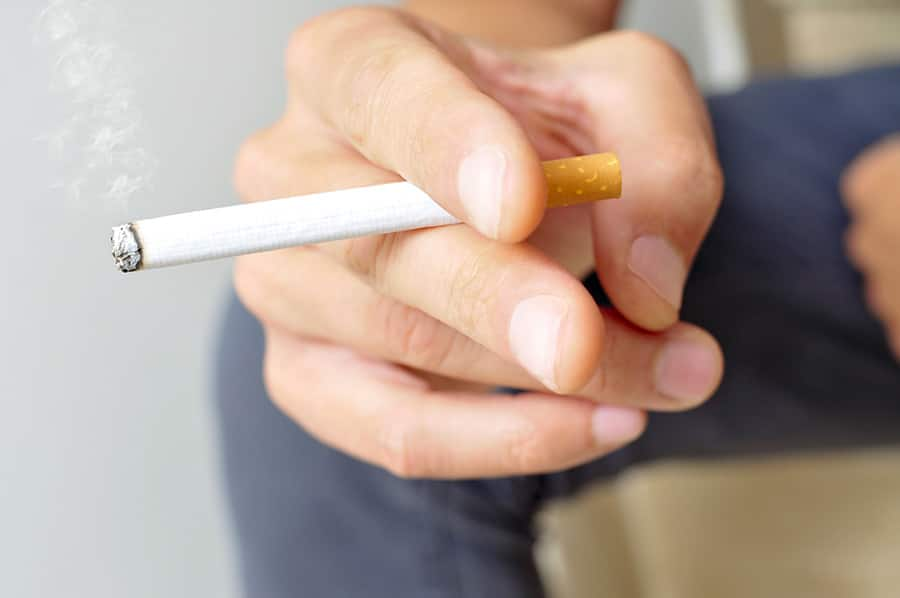-
-

FLUORIDE
What Is Stannous Fluoride Toothpaste?Discover what is Stannous Fluoride Toothpaste and its importance to prevent cavities and other oral health problems.

TEETH WHITENING
Whitening toothpaste - hydrogen peroxide vs. carbamide peroxideIf you lose one or more of your front teeth due to injury or decay, you may feel ...
-
Science & InnovationOral Health Commitment
- Oral Health Commitment
- Bright Smiles, Bright Futures
- Educational Resources
- Mobile Dental Van
- Volunteer
- ORAL HEALTH CHECK
- PRODUCT MATCH
- Oral Health and Dental Care | Colgate®
- Oral Health
- Wisdom Teeth Symptoms That Indicate Time Extraction


Adults usually have third molars, otherwise known as wisdom teeth, that come in anytime after about 18. And according to the American Dental Association (ADA), several symptoms tell you it might be time to have these teeth removed. Impacted wisdom teeth often cause the most significant discomfort and can ultimately harm your oral health as well.
Common Symptoms
The most common symptoms of impacted wisdom teeth include:
- Pain
- Infection
- Red or swollen gums
- Damage to adjacent teeth
- Bad breath
- Difficulty opening your mouth
- Unpleasant taste
Tooth decay may set in as well, mainly if there is poor access to fill a tooth.
Reasons for Extraction
Unfortunately, wisdom tooth related problems are quite common. Sometimes wisdom teeth don't have enough room to erupt, causing them to become impacted. Instead of the tooth coming in straight, in this case, it can lie on its side and press up against the tooth in front of it - trapped within the jaw or under the gums. This situation can cause crowding, improper bite alignment, and other problems as well.
A partially erupted wisdom tooth may also produce a condition known as pericoronitis, an infection wherein bacteria from food, plaque, and other debris become trapped in between the space of the impacted tooth and the gum. Patients with pericoronitis may notice painful, swollen gums near the wisdom tooth. More severe cases may experience noticeable swelling in the face and lymph nodes.
Making the Decision
When thinking about when to see a dentist about wisdom teeth, it's important to speak to your dentist to identify any discomfort or indications of erupting wisdom teeth. If these teeth do not offer any significant complications, they can remain untouched. But if the wisdom teeth are problematic, your dentist may recommend that you have them taken out.
Your dentist will most likely take an x-ray to see how your wisdom teeth are coming in and whether or not they might cause any problems in the future.
If your wisdom teeth need to be removed, the procedure is usually performed by an oral surgeon or dentist. Although, in some cases, a wisdom tooth extraction may only involve local anesthesia, you may also be under general sedation, depending on the complexity of your treatment. Dentists usually recommend having wisdom teeth extracted at a younger age because these teeth' roots are not fully developed, making them easier to remove.
Oral Care Center articles are reviewed by an oral health medical professional. This information is for educational purposes only. This content is not intended to be a substitute for professional medical advice, diagnosis or treatment. Always seek the advice of your dentist, physician or other qualified healthcare provider.
Related Articles

Wisdom teeth
Smoking After Wisdom Teeth ExtractionSmoking after getting a wisdom teeth extraction is a bad idea. Learn the complications smoking can cause after your wisdom teeth have been pulled.

Wisdom teeth
How To Get Food Out Of Wisdom Teeth HolesGetting food stuck in your wisdom teeth holes? Click here for all the information you need to keep your new wisdom teeth holes health & clean with Colgate ®.

Wisdom teeth
5 Possible Wisdom Teeth Removal ComplicationsHere are five of the most common complications with wisdom teeth removal to help you jump-start a discussion with your dentist.

Wisdom teeth
How to Sleep After Wisdom Teeth Removal: 4 Post-Procedure TipsAfter any surgery, sleeping can be difficult. Here are some tips for how to sleep after wisdom teeth removal.
Related Products

Colgate Total Active Prevention Whitening Toothbrush is a soft toothbrush with charcoal infused spiral and Floss-Tip bristles (1). This soft bristle toothbrush fights the root cause* of cavities, plaque, gingivitis, bad breath, tartar buildup**, and stains*** and also helps remove surface stains to prevent stain buildup.

Power away plaque with Colgate Total Battery Powered Toothbrush. This battery operated toothbrush for adults fights the root cause* of cavities, plaque, gingivitis, bad breath, tartar buildup**, and stains***. Plus, this battery toothbrush has a built in 2 minute timer and features two cleaning modes, Sensitive and Regular, to cater to your unique oral care needs.

The Colgate Total® Active Prevention Foaming Clean Soft Bristle Toothbrush is specially designed to tackle the root cause* of cavities, plaque, gingivitis, bad breath, tartar buildup**, and stains***.

Colgate Total Alcohol Free* Gum Health Mouthwash delivers 24-hour protection** against bacteria and also helps prevent gum problems

Helping dental professionals
More professionals across the world trust Colgate. Find resources, products, and information to give your patients a healthier future




